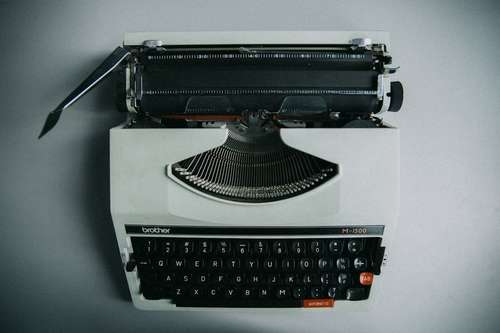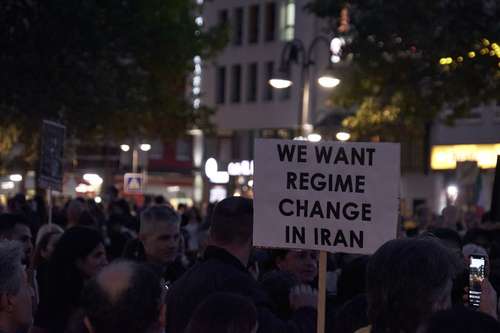The Bulwer-Lytton Fiction Contest has been turning the idea of literary excellence on its head for decades. It dares to celebrate bad writing in an era obsessed with perfection. You might think that proper writing is all about elegance and fine craft, but this contest challenges that notion by inviting participants to produce the worst opening sentence imaginable for a novel.
For many, this humorous writing contest is a delightful parody writing contest that reminds us that creativity sometimes lies in the most unexpected places. It shows that even in failure, there is charm and wit. The event has grown into a beloved annual writing contest that finds humor in verbosity and melodrama.
It’s like flipping a coin to decide whether your day is going to be filled with brilliant storytelling or brilliant silliness. And sometimes, both can coexist in the same sentence. The contest is a true writing challenge that has captured the imagination of writers and readers alike.
History and Origins
The Bulwer-Lytton Fiction Contest started out as a tongue-in-cheek literary competition that challenged the norms of creative writing. With roots that trace back over 40 years, the contest was inspired by the opening line of Edward Bulwer-Lytton's famous work, which has come to symbolize pompous and florid prose.
This bad prose contest provides a playful nod to the art of writing satire and literary parody. Its spirit has evolved into a celebration of poor writing styles that actually shine a light on the creative process. By flipping the idea of perfect prose on its head, the contest invites participants to write in ways that are both intentional and humorously off-the-mark.
Despite its seemingly negative premise, the Bulwer-Lytton Fiction Contest has grown a loyal following among writers who relish the thought of writing badly on purpose. Even as modern literature often focuses on depth and nuance, this contest proves that laughter and irreverence can be just as valuable.
The Art of Bad Writing
Ever wonder how deliberately bad writing could be so appealing? This contest encourages competitors to craft opening lines that are so overblown they become artful in their clumsiness. It forces writers to think outside the box and celebrate the flaws inherent in the written word.
Some might compare it to modern art – you either see genius in the chaos, or you shake your head in disbelief. In many ways, the contest is a literary challenge that not only fuels creative daring but also offers commentary on the pretensions of high literature. Participants often say that trying to outdo awkwardness is both fun and surprisingly challenging.
A key part of the fun is how competitors embrace wordiness and convoluted narratives. They transform what might otherwise be dismissed as gibberish into something with an odd, yet magnetic, allure. For many, this is not just a bad writing contest but a humorous writing contest that turns literary incompetence into a celebrated form of artistic expression.
The contest has a way of revealing that even in clumsy prose, there lies a method to the madness. It’s a creative writing contest that finds warmth in satire and humor in the crafting of intentionally atrocious prose. Every entry is a statement on the beauty of imperfection.
The Contest Impact on Literature
The Bulwer-Lytton Fiction Contest has carved out a unique space in the literary world. Because it doesn’t take itself too seriously, it reminds us that literature isn’t only about flawless storytelling. Instead, it’s about expression, and sometimes highlighting the worse elements can be just as revealing as celebrating the best.
This annual writing contest has funnily influenced how many writers approach their work. When the stakes are lowered and perfection is no longer the goal, there's liberating creative freedom. It’s a writing challenge that dares writers to explore the absurd and poke fun at literary conventions.
The contest is also noted as a humorous event where participants often share their entries at public readings and literary gatherings, sparking laughter and conversation. The appeal lies not only in the creative ingenuity but also in the communal experience of laughing at ourselves, reminding us that sometimes a bad sentence is the best pick-me-up.
Moreover, it serves as a friendly reminder that writing should be about the joy of expression rather than just technical precision. The Bulwer-Lytton Fiction Contest embodies literary humor and encourages everyone to enjoy the process of crafting, no matter how messy it might get. It's a nod to all the writers who dare to be delightfully imperfect.
How to Participate and Enjoy the Contest
The process to join the contest is as inviting as its theme. If you ever find yourself struck by a bizarre idea or an outrageously choppy sentence, the contest encourages you to put pen to paper and share your creation with others. It turns the fear of being judged harshly into a celebration of our collective fondness for imperfections.
Participation is open to everyone, making it a fun, accessible writing challenge. Many competitors are seasoned writers, while others are amateur wordsmiths who simply enjoy the playful nature of a bad writing contest. The variety of entries ensures that there is something for every taste, from hilariously jumbled metaphors to overdramatic narrative starts.
The contest also encourages community engagement through public discussions, online forums, and literary events where the entries are read aloud, fueling both creativity and healthy debate. It’s a chance for writers to voice not only their passion for writing but also their sense of humor at the expense of pretentious literature.
At its core, the Bulwer-Lytton Fiction Contest is as much about celebrating bad writing as it is about fostering a love of words. It provides a refreshing break from the pressures of achieving perfection and reminds us that playful experimentation can lead to some of the most unexpected creative outcomes.
Reflections on the Contest's Legacy
When we look back at the years of the Bulwer-Lytton Fiction Contest, it’s clear that this literary phenomenon has left an indelible mark on the world of creative writing. Its impact is felt not only among contest participants but also within the broader community of literature enthusiasts. The contest stands as a testament to the idea that literature doesn’t always have to be serious to be significant.
Writers from various backgrounds have noted that being willing to fail spectacularly can be a strength. By embracing bad writing, authors can sometimes find fresh perspectives and humor in the process. This ideological shift is a celebration of bad writing, transforming what many might see as a weakness into a vibrant and playful field of artistic expression.
The contest’s enduring popularity is proof that literary satire is more than just a clever idea—it’s a cultural touchstone that connects us through the shared experience of laughing at our own creative missteps. It continues to attract attention from people who appreciate the lighter side of writing, making it one of the most unique cultural events in the literary calendar.
While some may argue that writing should always aim for clarity and sophistication, the Bulwer-Lytton Fiction Contest shows that there is a special kind of charm in a sentence that goes humorously wrong. It’s an affirmation that bad writing can sometimes be just as memorable as a well-crafted masterpiece.
The legacy of this humorous writing contest thus lives on every year, inspiring an endless stream of creative, hilariously awful beginnings. It's a reminder that literature, at its heart, is about communication, expression, and sometimes, a good laugh.
In wrapping up, the Bulwer-Lytton Fiction Contest reminds us of the inherent joy in playful writing. It invites us all to enjoy the beauty of imperfection and appreciate the funny side of literary endeavors. Even if your sentence is spectacularly bad, it might just be brilliant in its own unique way!




